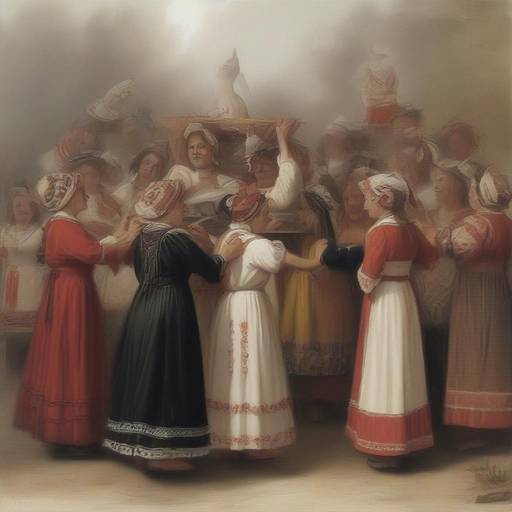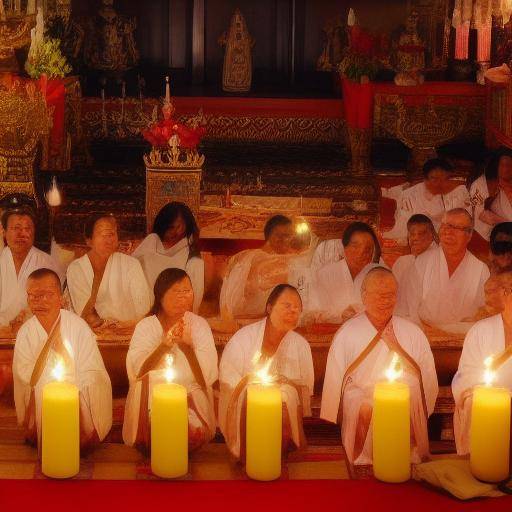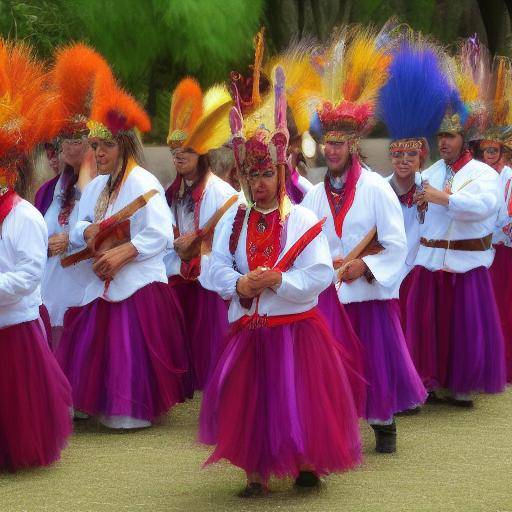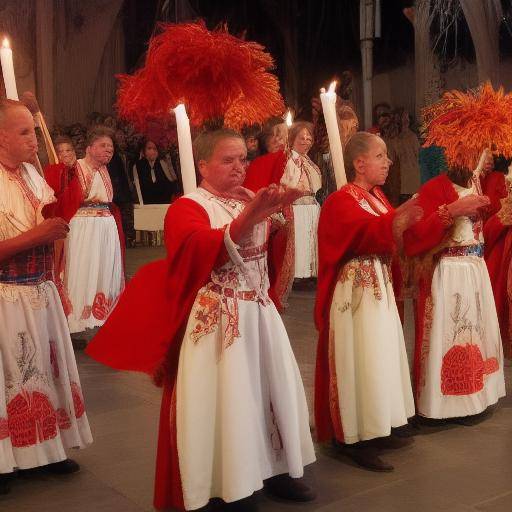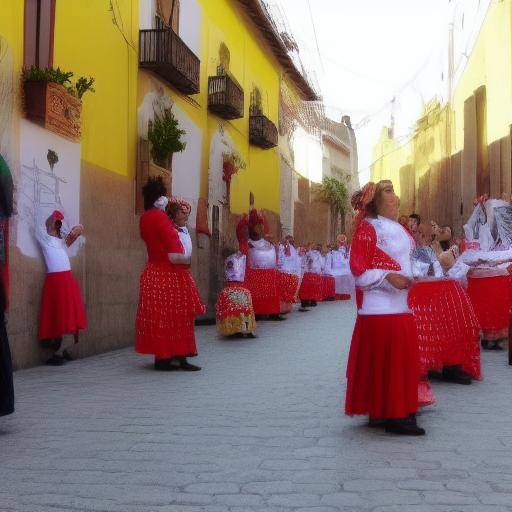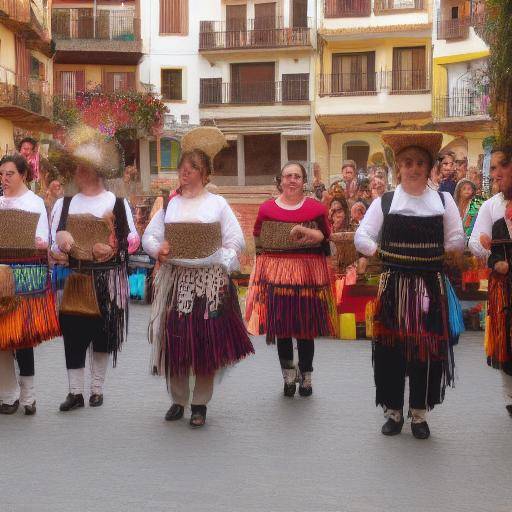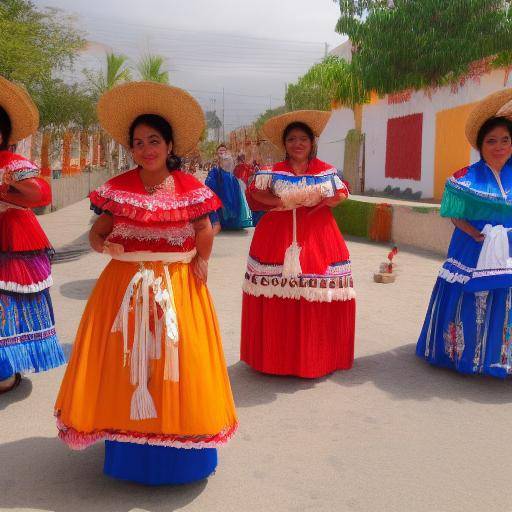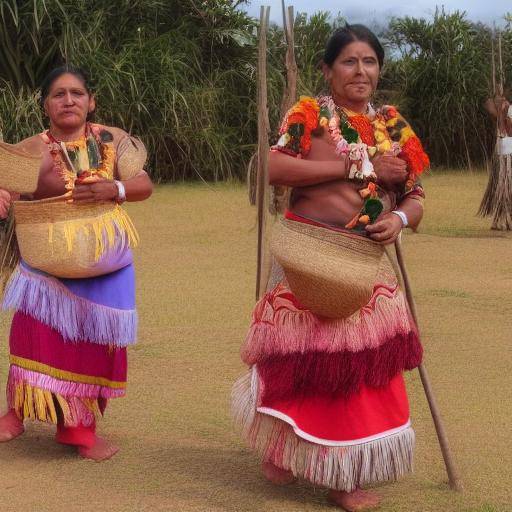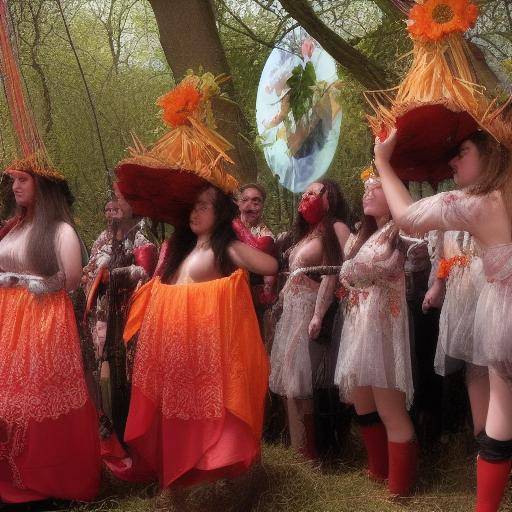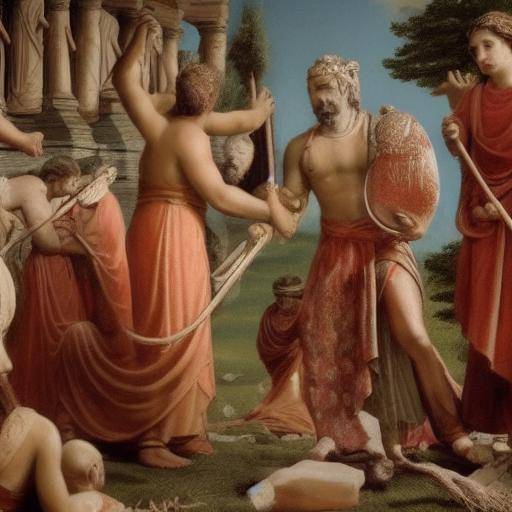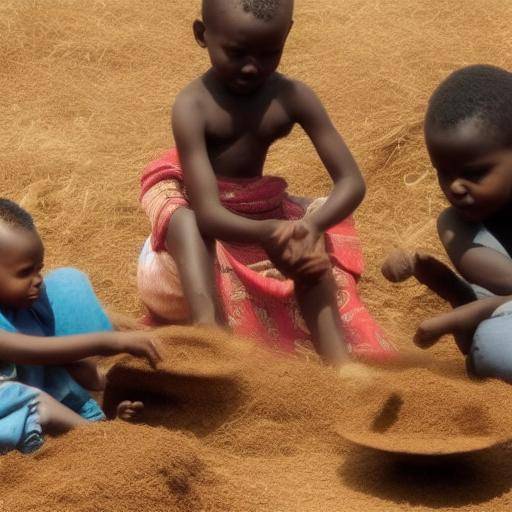
Introduction
The traditions and rituals of fertility in African cultures have been an integral part of the life of communities for centuries. These rites not only symbolize physical fertility, but also spiritual, emotional and social fertility. In this article, we will explore in detail the rites of fertility in the various African cultures, their historical meaning, their contemporary applications and their relevance today. We will learn about rituals associated with fertility, their connections to cultural traditions and their importance in African life.
History and Background
Fertility rites in African cultures have deep roots that go back to ancient times. These rituals have evolved over the centuries, adapting to social, economic and political changes. Since ancient times, fertility has been fundamental in African worldview, since fertile land and offspring have been considered essential elements for community continuity. In every African culture, fertility rituals reflect the beliefs and values rooted in faith and the connection with nature.
Fertility rites are not only associated with the conception of children, but also include the fertility of land, livestock and crops. These rituals are performed in specific contexts, such as weddings, agricultural seasons, or in transition times such as puberty. Through dances, songs, offerings and special ceremonies, African communities celebrate and encourage fertility in all its forms.
Detailed Analysis
By deepening in the fetility rites, we see that these play a crucial role in social fabric and community cohesion. Through these rituals, bonds between people are strengthened and the role of women as the bearer of life is exalted. Despite the diversity of practices, they all share the goal of ensuring continuity and community growth.
However, at present, these rituals have faced challenges due to the influence of modernity and globalization. Despite this, many African communities continue to preserve and revitalize these rituals, recognizing their importance in preserving cultural traditions and values.
Full review
Fertility rites, beyond their cultural relevance, have direct implications in people's lives. The notion of fertility has been extended to medical care, where health professionals recognize the importance of integrating cultural practices in reproductive processes. Similarly, fertility has also been a subject of interest in the academic field, where its relationship with social and economic development has been studied.
Despite the importance of fertility rites in African cultures, criticism has also emerged, alleging that certain aspects of these rituals perpetuate gender inequalities and perpetuate stereotypes. These problems raise debates on how to adapt these rituals to modern norms without losing their cultural essence.
Comparative analysis
By comparing fertility rites in different African cultures, we observe significant similarities and differences. While some rituals focus on feminine fertility, others include the participation of both men and women. The manifestations of rituals vary widely, from initiation rites to specific ceremonies for fertility.
Despite these differences, all fertility rituals share a common goal: to celebrate and honor fertility as a vital force that transcends the purely biological, influencing key aspects of community and spiritual life.
Practical Tips and Accessible Recommendations
While fertility rites in African cultures may seem alien to many people, it is important to recognize their value and meaning. For those interested in understanding and respecting these practices, it is essential to approach and learn from these traditions. In an increasingly globalized world, the preservation and understanding of African fertility rites contribute to global wealth and cultural diversity.
Industry Perspectives and Expert Reviews
Expert voices in African anthropology, history and studies have addressed fertility rites from various angles, highlighting their cultural relevance and potential in the formation of solid identities and communities. Scholars and scholars recognize that fertility rites in African cultures offer a unique window to understand the complexity and wealth of African traditions, inviting reflection on cultural diversity and the importance of preserving it.
Case Studies and Practical Applications
Through concrete cases, it is evident how fertility rites influence the daily lives of African communities. These cases allow us to appreciate the real and tangible impact of rituals on people's lives, highlighting their relevance in the social and emotional structure.
Future Trends and Predictions
The role of fertility rites in African cultures will continue to attract interest in the academic, social and health fields. As African communities navigate between tradition and modernity, new perspectives, policies and practices are expected to be generated that seek to integrate these rituals with the contemporary context, promoting the balance between the preservation of traditions and adaptation to the present reality.
Conclusion
Fertility rites in African cultures represent a fundamental facet of ancestral traditions, where fertility transcends the mere biological to become a pillar that sustains the lives of communities. These rites contain valuable knowledge about the connection between human beings and their environment, as well as the importance of preserving cultural diversity in an increasingly interconnected world. By understanding and evaluating these practices, a window opens to understanding and respecting the different ways of seeing and living the world.
Frequently asked questions
1. What is the meaning beyond biological fertility in African fertility rites?
Fertility rites in African cultures transcend the mere conception of children, representing the vitality of the community, the land and the natural environment. These rites reflect a worldview in which spiritual, emotional and social fertility intertwines with biological fertility, showing a holistic understanding of life and nature.
2. How do fertility rites adapt to contemporary contexts?
The adaptation of fertility rites to contemporary contexts is a complex theme that requires a balance between the preservation of traditions and the consideration of current realities. African communities seek to integrate these rituals into frameworks that respect individual rights and promote gender equality.
3. How can scholars and academics contribute to the understanding and preservation of African fertility rites?
The contribution of scholars and academics in the understanding and preservation of African fertility rites lies in their ability to document, study and widely disseminate the cultural and social importance of these practices. Rigorous academic research can offer a more complete and profound view of these rituals, contributing to their cultural legacy.
4. How do fertility rites influence the reproductive health of African communities?
Fertility rites have historically been linked to reproductive health, influencing knowledge, practices and attitudes towards conception, childbirth and upbringing. At present, there is an effort to integrate traditional practices with progress in reproductive health, seeking a balance between culture and health needs.
5. What is the role of fertility rites in the cultural identity of African communities?
Fertility rites are fundamental in the formation of the cultural identity of African communities, as they symbolize the connection with land, the heritage of ancestral traditions and the continuity of life in the community environment. These rituals serve as tangible reminders of the rich cultural diversity of the African continent.
6. What is the impact of fertility rites on gender relations within African communities?
The impact of fertility rites on gender relations has been a topic of debate and reflection. While some rituals reinforce traditional gender roles, others open spaces for the equal participation of men and women. There is a call to review certain aspects of these rituals to promote gender equality and respect for diversity.
In conclusion, the rites of fertility in African cultures invite us to a journey of understanding and respect for rich and deeply rooted traditions. In exploring these rituals, the complex and beautiful relationship between human beings, nature and the community is revealed. This knowledge is a treasure of incalculable value that deserves to be preserved and celebrated, enriching the cultural diversity of the world.

















